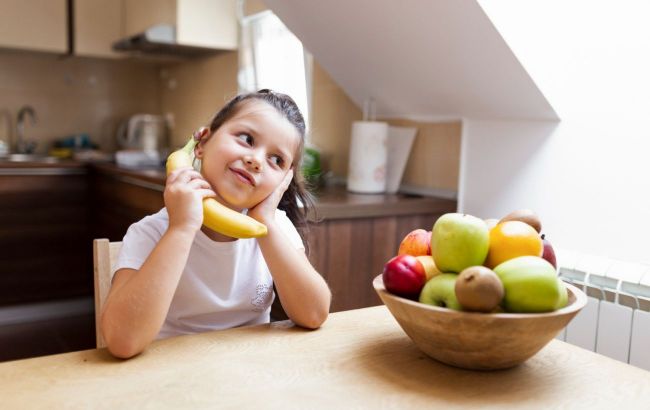True superfood for kids: Doctor names fruit beneficial for development
 When can children first try persimmons, and what are their benefits (photo: Freepik)
When can children first try persimmons, and what are their benefits (photo: Freepik)
Persimmons are not only delicious but also highly beneficial for children's health. This sweet fruit is ideal for introducing solid foods, as it contains vitamins and minerals essential for a child's development, according to Ukrainian pediatrician Daria Vlasenko.
Benefits of persimmons for children
According to the doctor, persimmons contain the following beneficial components:
- Vitamins: Rich in vitamins A, C, and K, which are essential for healthy skin, a strong immune system, and good vision.
- Folate: Supports the development of the nervous system.
- Potassium: Helps maintain heart health and supports the nervous system.
- Antioxidants: Combat harmful free radicals and protect the body.
- Fiber: Regulates digestion and prevents constipation, a common issue for children transitioning to solid foods.
How to introduce persimmons into a child's diet
Persimmons can be introduced as a puree for children older than 6 months. Start with 1–2 teaspoons and gradually increase the portion.
It’s important to monitor the child’s reaction. Since persimmons are a new food, wait a few days after introducing them to observe for any signs of allergies or digestive issues.
If the persimmon is very sweet or soft, you can offer it in small pieces to children who have already started eating solid foods (after 9–12 months).
Mix persimmons with other fruits or add them to yogurt or porridge. This will diversify the flavors and enrich the diet.
Can children eat dried persimmons
According to pediatrician Daria Vlasenko, dried persimmons can be hard to chew, increasing the risk of choking or aspiration. Therefore, it’s best to avoid including dried persimmons in a child’s diet.
For individuals with existing digestive issues, consuming large amounts of fiber-rich foods, like persimmons, may lead to constipation.
However, persimmons are generally a great food for babies and toddlers when served in an age-appropriate manner and as part of a varied diet.
Additionally, persimmons have a low risk of causing allergies, as they are not considered a common allergen. This makes them relatively safe to introduce to children.
Unripe persimmons contain high levels of tannins, which give them an astringent taste and may cause digestive discomfort. It’s crucial to ensure the fruit is fully ripe before offering it to a child.
Can persimmon puree be frozen
Persimmon puree can be frozen in an ice cube tray and stored for up to 3 months. When ready to use, simply thaw it in the refrigerator or microwave.
Choose ripe persimmons without a hard core to ensure safe consumption. The fruit should be soft and naturally sweet.
It’s not recommended to give persimmons to children under 6 months of age due to their high natural sugar content. Introduce them only after the child has adapted to more neutral foods.
Earlier, we reported on 7 foods that are beneficial for a child's brain.
This material is for informational purposes only and should not be used for medical diagnosis or self-treatment. Our goal is to provide readers with accurate information about symptoms, causes, and methods of detecting diseases. RBС-Ukraine is not responsible for any diagnoses that readers may make based on materials from the resource. We do not recommend self-treatment and advise consulting a doctor in case of any health concerns.

